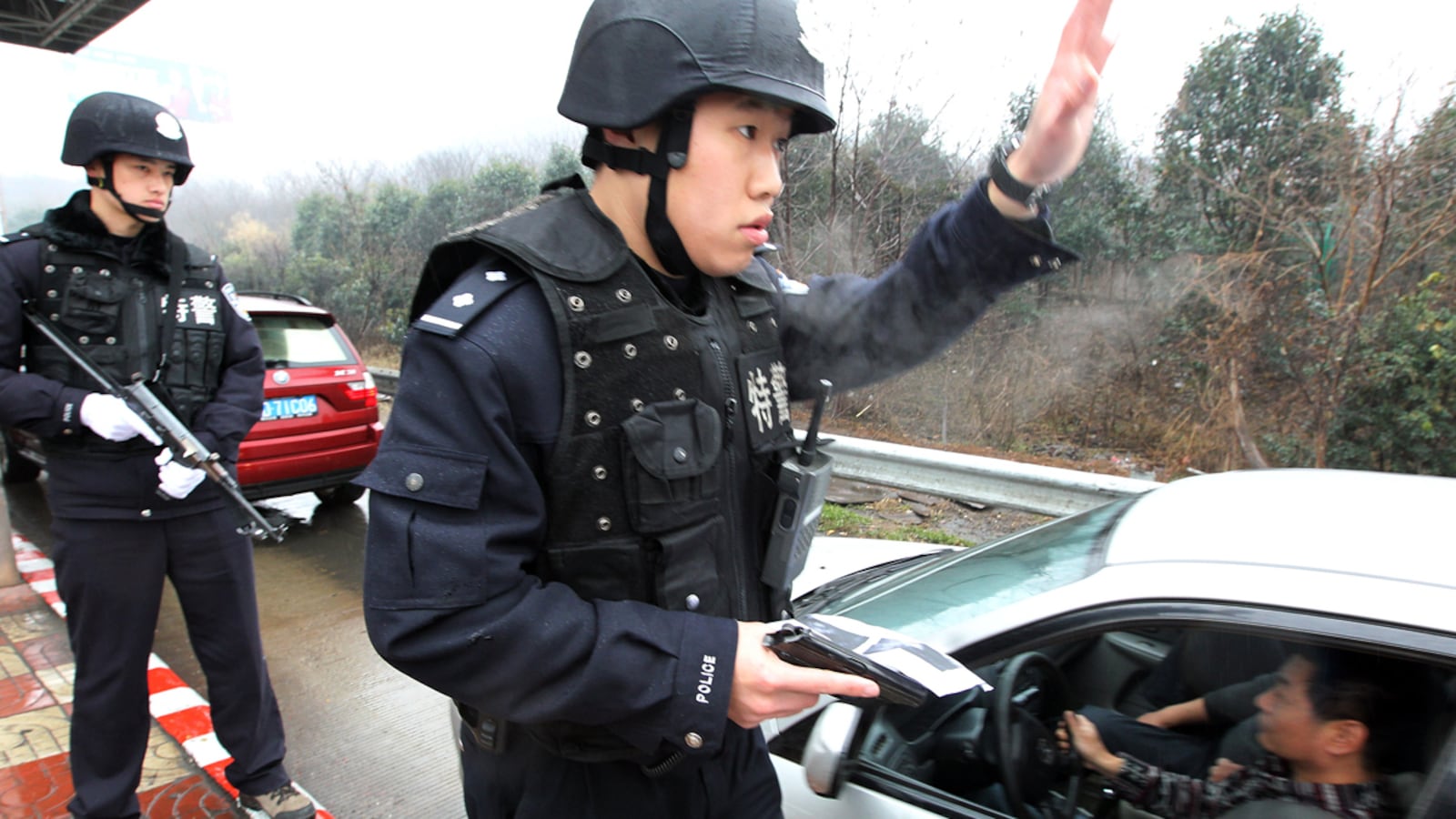Hide your kids, hide your wife. But please don’t panic.
Residents of the Chinese city of Nanjing are locking their doors and looking over their shoulders today as 13,000 police officers hunt a serial killer on the loose since 2004. He allegedly robbed and murdered a man on Friday, stealing the equivalent of $32,000.
Reports in the Chinese media tell of a massive search underway for the suspect, believed to be a man named Zeng Kaigui, 42, a former Army police officer who is using skills he learned in the military to kill and outsmart law enforcement.
As China gears up for the annual Chinese New Year holiday, when hundreds of millions of people make the long journey to their hometowns across the country, law enforcement in Nanjing is patrolling train and bus stations and putting up roadblocks in an attempt to catch the killer. The city’s two subway lines are currently covered in 700 wanted posters, according to an article in the Global Times newspaper, and the police are offering a reward of $158,000 for his capture.
Over the past eight years, police say, Zeng has killed six other people and stolen a total of $44,000 in a reign of terror across China. Just how he remains loose in the world’s largest police state remains a mystery, given the Chinese authorities’ massive surveillance system and public-safety budget, reported to be more than $77 billion in 2010. Police sent a photo of the suspect with a warning to Nanjing residents’ cellphones as well as to bus drivers and train conductors, while authorities are now demanding that male long-distance bus passengers show identification.

Whether the manhunt will be successful is an open question. A skilled shooter, Zeng, wearing a dark coat, peaked cap, and dark glasses, reportedly robbed the man in broad daylight. According to the Global Times, a witness said he “showed no sign of nerves after carrying out the shooting and quietly left the scene with the money.”
The widespread media coverage of the search for a serial killer on the loose marks a change in the way the Chinese authorities respond to such crimes. In a nation where the officials wield complete control over information and the police have little incentive to publicize crimes they can’t solve, the massive manhunt and wanted posters seem more fit for a thriller film than real life. More often, the Chinese government censors any coverage of serial killers and other murderers unless they have already been caught. For the Communist Party, which has hinged its monopoly on power on providing a safe and secure nation, bloodthirsty crimes only serve to undermine its legitimacy.
In 2003, police caught a 35-year-old migrant worker from Henan province who confessed to murdering 65 people in rural villages in the three years prior and to raping 23 of his female victims. The man, Yang Xinhai, snuck into villagers’ homes at night wearing a pair of white gloves and killed everyone inside—sometimes entire families—with shovels, hammers, or axes. He was executed by firing squad in 2004. At the time of his arrest, many Chinese were furious that the authorities had put lives at risk by covering up the murders until the police had detained suspects.
That practice continues to this day. Last year, leaked instructions from China’s censors demanded of the media: “Do not report, comment on, or hype up the series of vicious murder cases” in Henan province. Just what did the government not want people to know? That the police had not found the killer, who “ate four of his female victims.”






